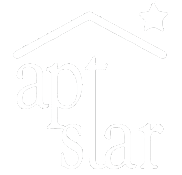What you need to know if you are relocating to New York City
If you are relocating to New York City chances are you have found a job or are relocating because of a job. Few people, nowadays, just pluck up and move to New York without securing employment.
There are so many things to consider when you are making this leap of faith, because, ultimately even though New York is the capital of the world and you are bound to have an amazing time here, it isn’t for the faint of heart or for someone on a very limited budget.
The first thing you are going to need is a place to crash while you find an apartment. Most corporations who hire people from other countries will offer you a temporary apartment for about 30 days. If this is something you can get, take it. You will need some time to a) prepare for your apartment hunt by gathering the necessary paperwork, b) get a feeling of what it is like to commute in New York City, and c) figure out where you want to live.
Figuring out where you want to live means what borough and what neighborhood. And it isn't as easy as it sounds.
Every New York City neighborhood (even within the different boroughs) has slightly different rental prices for the same size apartment. So that for example, a one-bedroom apartment on the Upper East Side might rent at $3,000 per month and then the same size apartment on the Upper West Side might fetch $3,600/mo. Another one of equal or even smaller size on the Lower East Side might be priced at $2950; while yet another one in the West Village could be asking as much as $4,200. So that the first thing you will notice or need to know is that prices for apartments, depending on where you want to live have a wide price-point spread.
What I suggest to my clients if they are really new to New York City is to find an affordable apartment that is close to where they work and then to take the first year to get to know the city. You will only know 100% for sure where you really want to live after you are here and have experienced the restaurants, the bars, the nuances of the neighborhoods where your co-workers or your friends live. All the neighborhoods are like small villages. They’re all unique. They all offer good things and bad things. Like a great neighborhood for you might be Greenwich Village but the price point is a major ouch.
Before you even land in the city you will want to have some of the financial documents any prospective landlord will want to see before you get green-lighted for an apartment.
Your Visa. Your ID. Financial information from banks showing how much money you actually have. Liquid assets vs non-liquid assets (such as stocks, bonds, retirement accounts). To see a list of what landlords normally require take a look at our "Financial Documents To Prepare" page.
Preparing in advance means you will be able to start seeing apartments quickly. Please remember good apartments last a nano-second and even there are multiple applicants.
Most landlords have a lease start date of the 1st of every month. Some landlords will be able to show apartments 60 days in advance; while others will show only 30 days in advance.
The sooner you can see an apartment, apply for it, get accepted and sign a lease the better off you are. Your goal should be to try to get all this done 60-20 days before your desired move in-date. After that the pickings are very slim.
One thing you can be assured of: you are going to love living here. You just have to know how to find your first rental in the city.





